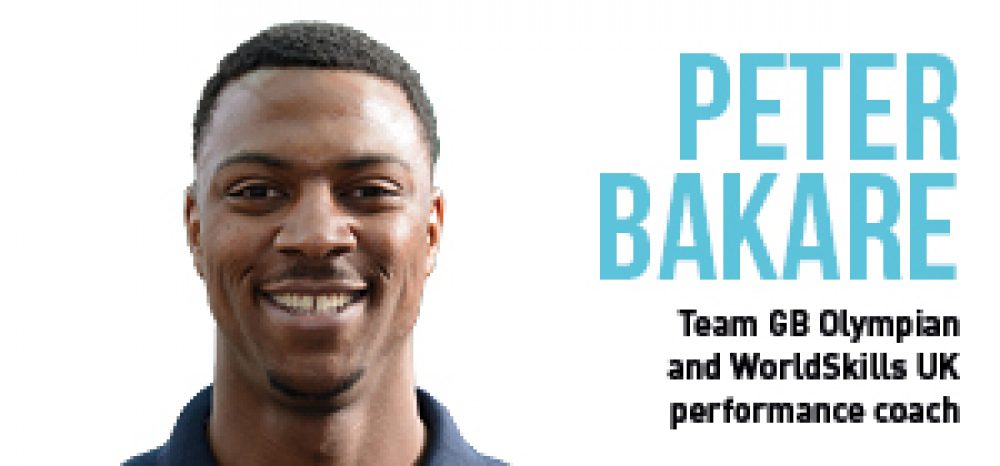With over 100,000 people at WorldSkills 2017, you realise the size of the task facing our top apprentices as they prepare for the next “skills Olympics”, explains Peter Bakare
I always tell people that training for WorldSkills, is no different than training for the Olympics. I see the same hunger and determination in the apprentices I am working with ahead of EuroSkills 2018 and WorldSkills 2019 that I saw in my teammates when I competed as a Team GB Olympian in 2012.
The truth is in representing their country, a WorldSkills UK champion and a Team GB Olympian have very similar journeys. Both start at grassroots level, progressing nationally, then internationally. Having excelled in the national finals of the WorldSkills UK competitions, our apprentices have achieved something that 99.99 per cent of the population will never do: they can proudly say they are “the best of the best”.
However the hard work doesn’t stop there.
As you would expect, technical skills development makes up a large part of the training programme. Volunteer training managers are appointed to devise this training, and there is certainly no room for mistakes. Being just one millimetre out on a measurement can result in points dropped and that is the difference between winning and losing a medal.
This, though, is only half the story.
Our apprentices need the mindset of medal-winning champions to succeed on the world stage. It is my job, and that of the volunteer WorldSkills UK performance coaches, to help them get this right.
Launching this coaching programme at the WorldSkills UK training camp at Loughborough University this month, we took sports psychology to stretch and develop our apprentices. Throughout their 18-month development programme, we will cover key areas including nutrition, health and wellbeing, performing under pressure, effective communication skills, organisation and maintaining a positive mental attitude.
A WorldSkills UK champion and a Team GB Olympian have very similar journeys
We even teach our apprentices how to control their “inner chimp”. Based on the findings of leading sports psychiatrist Professor Steve Peters, this refers to the part of the brain fuelled on impulsive emotion and gut instinct. In training, led by my fellow coach Greg Houghton, we show our apprentices and learners that by using logic over impulse, they can achieve optimum performance not only in competition but in their workplaces as well. Seeing the apprentices embrace this learning is why training for WorldSkills is so much more than just preparing for a competition.
We know that many of members of Team UK end up promoted at work. They have told us that following their training with WorldSkills UK, they head back into work at least five years ahead of their peers, both in technical knowledge but also maturity. It is this accelerated learning which shows why our apprentices are the role models that our prime minister is looking for to showcase the young talent in this county.
When I was training for the 2012 Olympics I was focused solely on delivering my best performance. The apprentices who attended the WorldSkills UK Training Camp are no different. However, we know that once their skills competition journey ends, their determination to be the best doesn’t and it is UK PLC which is benefiting.
A chef who has worked at no fewer than three Michelin-starred restaurants, a paint technician part of the team behind Lewis Hamilton’s Formula One success, and a fashion designer who was headhunted to work at Yves Saint Laurent and now runs his own fashion label have two things in common: their success all happened under the age of 30 – and they all won medals at WorldSkills.
It is stories like this which inspired me to become a performance coach. A few years ago, someone gave an East-End boy a chance. That boy was me and through competing I achieved my goals. I now want to help other young people succeed in work and life through competing. Together we can create the role models to inspire the next generation.
Peter Bakare is a Team GB Olympian and WorldSkills UK performance coach








Your thoughts